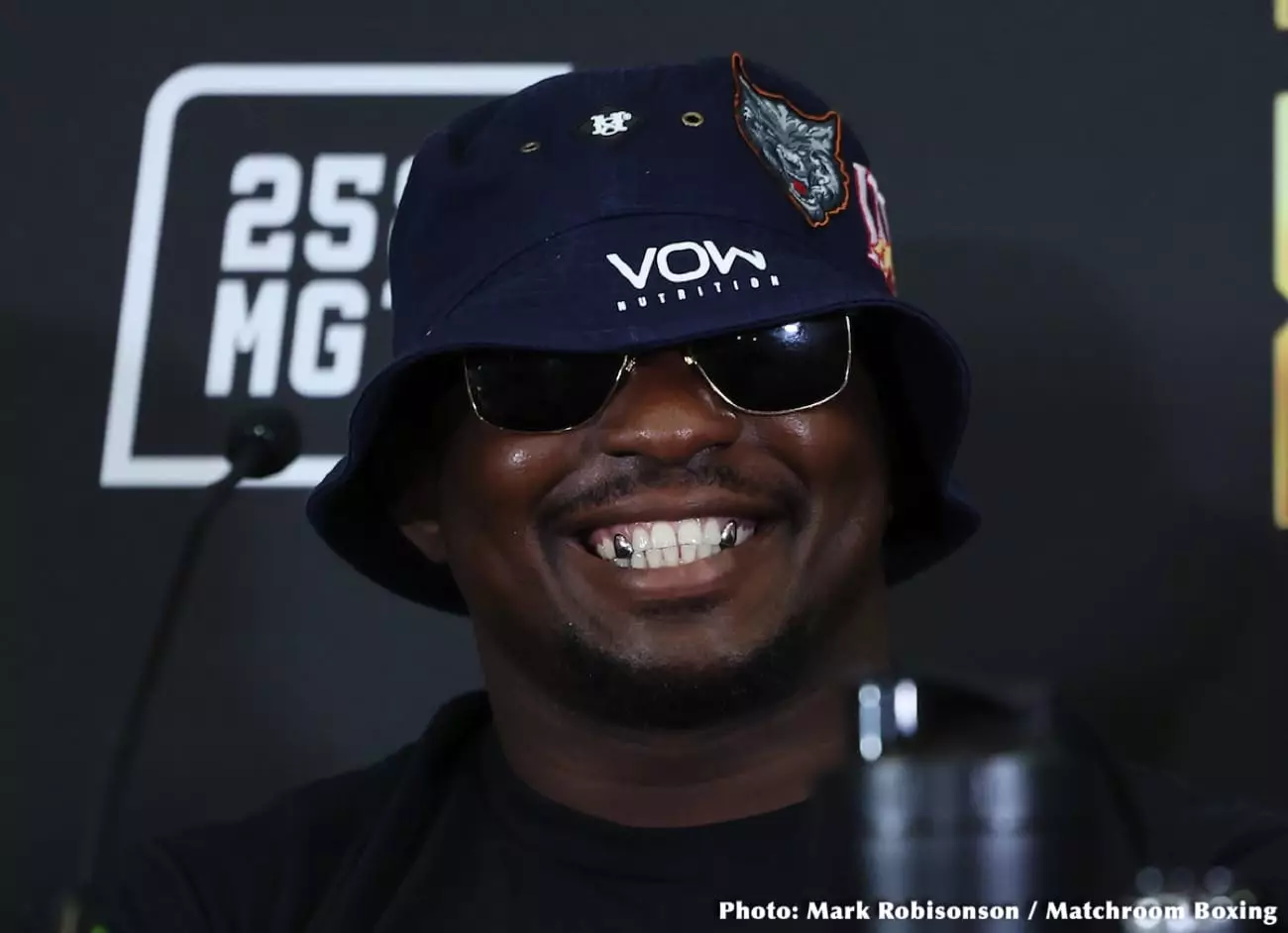In the dynamic world of professional boxing, rivalries can ignite passions, generate intense media buzz, and drive fighters to new heights. The latest chapter of the storied rivalry between Dillian Whyte and Anthony Joshua presents a compelling narrative that balances potential redemption against stark reality. Whyte, a 36-year-old heavyweight whose recent bout left much to be desired, has reignited discussions about his former foe Joshua, claiming he is “finished.” This bold assertion, made during an interview with Sky Sports, paints a complex picture of the current boxing landscape and raises questions about both fighters’ futures.
Dillian Whyte: From Contender to Challenger
Dillian Whyte recently faced Ebenezer Tetteh, a fighter who was considered a significant underdog. Whyte’s performance was characterized by a lack of finesse—marked by labored movements and sloppy techniques—that nevertheless provided a degree of entertainment. Winning against Tetteh may have secured him a spot in the spotlight, but it also revealed his limitations. With a record of 31 wins and 3 losses, Whyte acknowledges that he wants to face Anthony Joshua once again, a man who now finds himself at a crossroads.
The eagerness expressed by Whyte to engage Joshua in the ring is driven by a mixture of ambition and potential opportunism. Whyte’s commentary about Joshua’s career trajectory—asserting that his rival has made a profound mistake by bypassing a rematch with Daniel Dubois—highlights his willingness to engage in psychological tactics. By claiming the former champion is “finished,” Whyte is not just attempting to destabilize Joshua’s confidence but also to position himself as the ideal comeback opponent.
Anthony Joshua, at 35 years old and holding a professional record of 28 wins and 4 losses, is navigating uncharted waters. Once hailed as a boxing superstar and a symbol of British boxing, Joshua’s recent defeats have chipped away at his formidable image. Whyte’s commentary strikes at the heart of the concerns surrounding Joshua’s psychological resilience and physical capabilities following a series of high-pressure matches. The notion that Joshua is “finished” resonates with some fans who have seen diminished performances.
Despite this bleak assessment, there remains a strong contingent of supporters who view Joshua as a warrior, ready to fight any opponent that steps into the ring. Eddie Hearn, his promoter, has often echoed this sentiment—highlighting Joshua’s willingness to continue challenging himself in a demanding sport. With potential matchups against fighters like Martin Bakole and even a dream fight against Deontay Wilder tantalizingly on the horizon, Joshua’s next steps are crucial.
A rematch with Whyte could serve as a double-edged sword. For Joshua, it offers an opportunity to re-establish his status in heavyweight boxing, yet it also carries the risk of a catastrophic defeat. Whyte believes that a hypothetical match between him and Joshua would guarantee an electrifying encounter, one that is infused with their historical rivalry. His confidence suggests a willingness not just to fight but to thrive in the high-pressure atmosphere that accompanies their bouts.
Interestingly, Whyte’s self-critique is also worth noting. His own lackluster performance against Tetteh raises questions about his readiness to take on an opponent of Joshua’s caliber. Though Whyte may view himself as a necessary stepping stone in Joshua’s potential comeback, both fighters must confront the reality of their current states. Each possesses a storied history, but both now grapple with waning confidence and scrutiny around their abilities.
The Path Forward: An Inevitable Meeting?
As both Dillian Whyte and Anthony Joshua navigate the tumultuous waters of their careers, the question looms large: will they face off once more? The boxing community is rife with speculation, fueled by Whyte’s audacious declaration and Joshua’s precarious situation. Fans crave the rekindling of this rivalry, not merely for nostalgia but as part of a greater competition that propels the heavyweight division forward.
The potential clash between Whyte and Joshua transcends mere athleticism; it addresses themes of redemption, legacy, and the quest for personal significance amid shifting careers. The stakes are high, and the implications of this match could resonate beyond the ring, determining not just the trajectories of two fighters but perhaps the future narrative of modern boxing.

